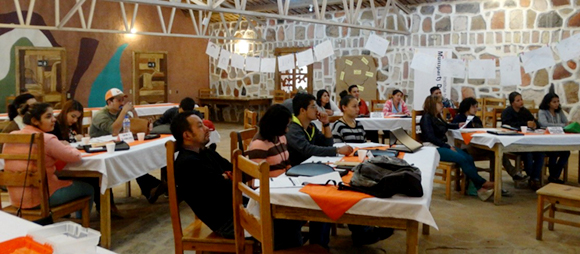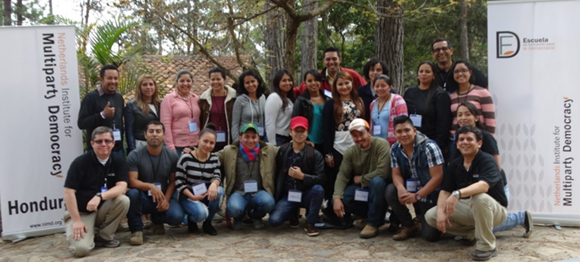Democracy School kicks off in Honduras

For the third year running, NIMD held a Democracy School for young representatives of political and civil society organizations in Honduras. These young people came together to complete training modules, engage in dialogue and propose a plan towards social change based on democratic values.
This year, the School took place in the city of La Esperanza in the south west of Honduras. 20 young people took part in the course: 11 women and 9 men representing 5 political parties. Through a series of six sessions each lasting up to three days, the NIMD Democracy School aimed to build the capacities of these future political and social leaders, imparting democratic values to help them to contribute proactively in building a new democratic culture.

The training promoted a proactive, participative and democratic form of leadership. It comprised six modules which were rolled out between May and July 2017, and which focused on creating social change towards deeper democracy:
- Social change in my country and my area: The democracy we want;
- Tools for social change I: generative dialogue and inclusive strategic planning;
- Tools for social change II: planning and strategic planning and communication for change;
- Constructing social change: public policies, transparency and accountability;
- Our prototype of change;
- Communicating social change in our area.
With the support of specialized instructors, the young political and social leaders developed skills to help them to promote democratic values. It is hoped that they will go on to use these skills to drive initiatives of change based on inclusivity, respect and rule of law. Through these initiatives, the participants engaged proactively in developing a new political and democratic culture within their organizations, their regions and their country as a whole.
Why a Democracy School in Honduras?
Much like other Latin American countries, Honduras faces deep structural problems such as extreme poverty, human rights violations, and a lack of trust in institutions, particularly political parties.
These problems must be addressed by all citizens, but especially by young political leaders who are set hold decision-making positions in the future.
The Democracy School in Honduras helps these young leaders to identify and analyse the structural problems faced by their county. The School promotes a culture of transparency and accountability, and provides the new generation of leaders with the skills and values necessary to build a more inclusive and robust democracy.
More on NIMD’s democracy education here.